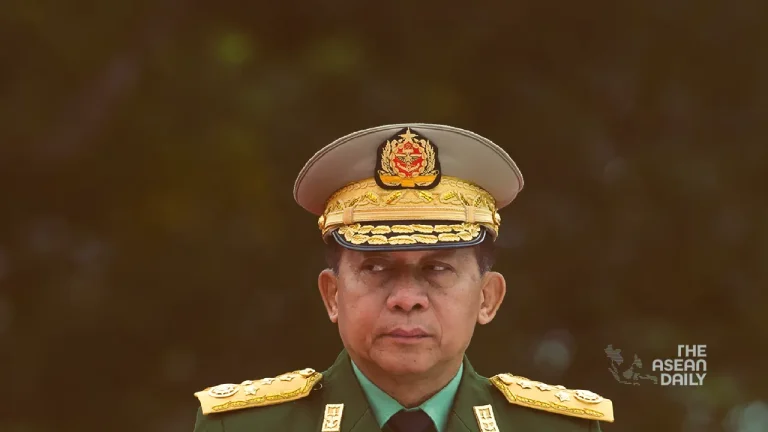5-1-2025 (YANGON) Myanmar’s military junta has announced the release of more than 6,000 prisoners as part of an Independence Day amnesty, though only a small fraction of those freed were political prisoners, state media revealed on Saturday.
The amnesty, declared by junta leader Senior General Min Aung Hlaing, encompasses 5,864 domestic inmates and 180 foreign nationals, with the latter group facing deportation, according to state broadcaster MRTV.
Whilst mass prisoner releases are customary during national celebrations in Myanmar, this latest round has drawn scrutiny for largely excluding those detained for opposing military rule. Approximately 600 individuals previously charged under Section 505(A) of Myanmar’s penal code—a controversial law frequently employed to silence regime critics—were among those freed.
Former Kachin State Chief Minister Khet Aung, who had been serving a 12-year corruption sentence since his arrest following the military takeover, emerged as one of the more prominent figures granted release.
Speaking to state media, junta spokesman Major General Zaw Min Tun indicated that many of the foreign nationals released were Thai citizens arrested for illegal gambling in Tachileik, along with Indonesian fishermen detained for territorial waters violations.
Outside Yangon’s notorious Insein Prison, families gathered to welcome released loved ones as prison buses departed the facility. Notably absent from the amnesty was ousted civilian leader Aung San Suu Kyi, who remains in detention serving a 27-year sentence following what international observers have condemned as politically motivated trials.
The Assistance Association for Political Prisoners reports that since the military seized power, more than 28,000 people have faced political charges, with 21,499 still behind bars as of Friday. The monitoring group has also documented over 6,100 civilian deaths at the hands of security forces during this period.
Whilst some prisoners received sentence reductions—typically one-sixth of their original terms—those convicted under anti-terrorism legislation and other laws commonly used against political dissidents were excluded from such considerations.
The amnesty coincided with Myanmar’s 77th Independence Day celebrations, marking the nation’s freedom from British colonial rule in 1948. The military government commemorated the occasion with a flag-raising ceremony in the capital, Naypyidaw.




